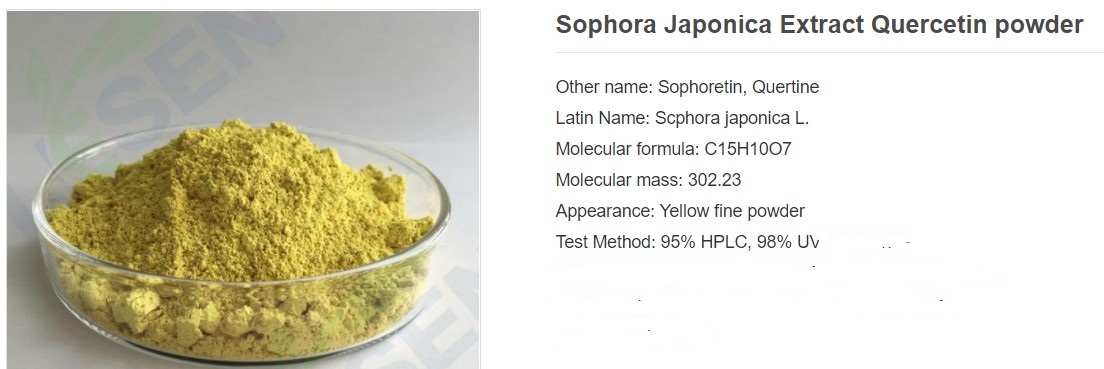
Quercetin is a flavonol, which is a sub-category of flavonoids.
Flavonoids are a particular chemical in plants, called phytonutrients, and have a wide range of health benefits.
Humans cannot make quercetin in their body, but many fruits, vegetables, and drinks contain it
Possible health benefits of quercetin include:
Quercetin has antioxidant properties.
Antioxidants work to protect the body from free radicals. Free radicals are unstable molecules in the body that can increase the risk of disease and quicken aging.
Inflammation is the body’s natural response to stress and injuries and usually helps the body heal. However, chronic inflammation can be harmful to the body and may contribute to certain health conditions.
However, quercetin might help reduce inflammation. One study on animals found that quercetin prevented both acute and chronic inflammation, in addition to showing anti-arthritis properties.
Results from human studies have provided mixed results, however. While research on healthy male athletes found that quercetin could reduce inflammation, it did not have the same effect in women with rheumatoid arthritis.
Quercetin occurs naturally in onions.
Quercetin may contain anticancer properties that might help prevent the spread of cancerous cells and tumor growth.
Research has shown that a diet high in flavonoids, such as quercetin, can help prevent cancers. Fruits and vegetables are full of flavonoids, so increasing intake of these foods might reduce the risk of many types of cancer.
A 2015 repor found that quercetin restricted the growth of prostate cancer cells in mice and rats.
A 2018 in vitro study indicated that quercetin showed promise in both the treatment and prevention of prostate cancer. In vitro means the researchers performed the experiment outside of a living thing, for example, in a test tube.
Researchers still need to find out more about the anticancer properties of quercetin in humans and to ensure the body can absorb high doses of quercetin effectively.
Quercetin may help to prevent neurodegenerative diseases, such as Alzheimer’s or Parkinson’s disease.
Oxidative stress contributes to the development of neurodegenerative diseases. Oxidative stress occurs when there is an imbalance of free radicals in the body. The antioxidant properties of quercetin may help fight free radicals.
Research on rats showed that quercetin could protect against oxidative stress. It also showed quercetin could protect against the toxic effect of certain metals on the nervous system.
Research suggests that quercetin might be an effective antihistamine, as it restricts histamine from being released from cells.
These anti-allergy properties indicate that quercetin might help treat bronchitis and asthma.
Quercetin has antibacterial properties, which are effective against almost all types of bacteria, particularly those linked to:
stomach and intestines
skin
respiratory
urinary
Diet plays an essential role in reducing the risk of cardiovascular diseases, such as heart disease and strokes. Because fruit and vegetables contain flavonoids, eating more of them can reduce the risk of these diseases.
Quercetin may improve blood vessel cell health and blood flow through arteries in people with heart disease.
According to a 2016 study by the American Heart and Stroke Association, taking quercetin supplements could be an effective way to reduce blood pressure.
Other research showed that people who were overweight and took a quercetin supplement of 150 milligrams (mg) per day had lower levels of harmful cholesterol in their blood, as well as reduced systolic blood pressure, which measures the pressure in the blood vessels during a heartbeat.
People can get quercetin through their diet by eating a range of fruit and vegetables each day.
Onions have the highest level of quercetin compared to other tested produce, containing approximately 300 mg per kilogram.
If people take quercetin as a supplement, the most common dose is 500 mg per day, but some people can take up to 1,000 mg per day.
Source:
Quercetin: Health benefits, dosage, and side effects (medicalnewstoday.com)
Our product

Quercetin is a potent antioxidant and has anti-inflammatory activity, protecting cellular structures and blood vessels from the damaging effects of free radicals. It improves blood vessel strength. Quercetin inhibits the activity of catechol-O-methyltransferase that breaks down the neurotransmitter norepinephrine. This effect may lead to elevated levels of norepinephrine and an increase in energy expenditure and fat oxidation. It also means quercetin acts as an antihistamine leading to relief of allergies and asthma. As an antioxidant, it reduces LDL cholesterol and offers protection from heart disease. Quercetin blocks an enzyme that leads to accumulation of sorbitol, which has been linked to nerve, eye, and kidney damage in diabetics.